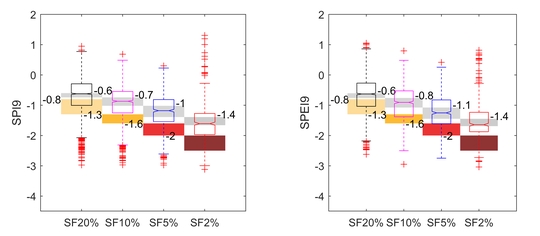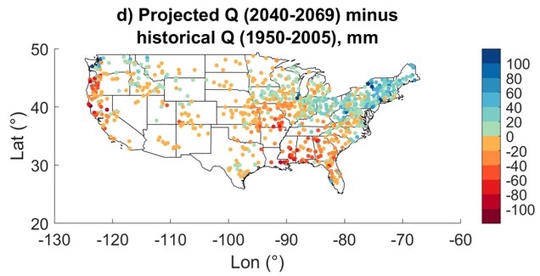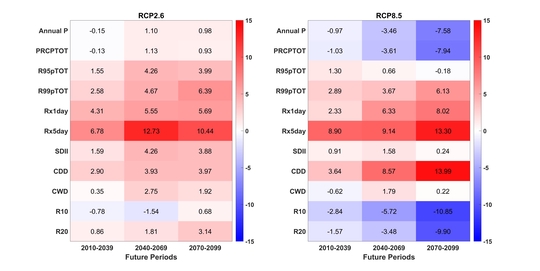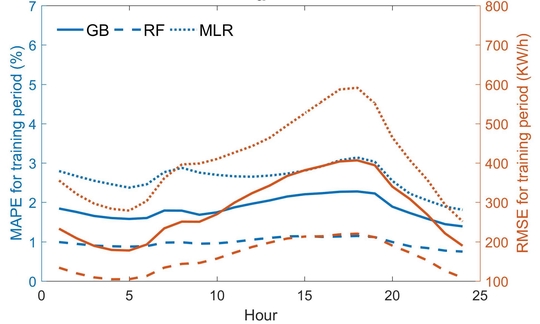Zhiying Li
Assistant Professor
O’Neill School of Public and Environmental Affairs
Indiana University Bloomington
About
Welcome to the Hydroclimatology Group at O’Neill School at Indiana University Bloomington! We are interested in fundamental and applied questions in the interrelations among climate, water, and people. Our group seeks to provide a comprehensive understanding of variability, drivers, and impacts of two representations of changes in the water cycle in a warming world: (1) hydroclimatic extremes such as drought and flooding, and (2) water availability. We use a wide range of approaches including process-based hydrologic models, hydrologic theory, fully coupled Earth System Models, spatiotemporal statistical modeling, machine learning, big data, GIS, and remote sensing. The overarching goal of our research is to inform risk management, climate adaptation, and sustainable development under climate change.
I’m looking for a postdoctoral researcher to join my group and a team of collaborators to study hydrologic intensification and water availability across the continental U.S. Apply now!
News
May 2025: Zhiying Li’s co-authored paper is published in Journal of Climate: “Nonlinear carbon feedbacks in CMIP6 and their impacts on future freshwater availability”. Check it out!
May 2025: Nisha Sarwar, Aaryan Patil, and Kishore Kumar Ramkumar join the group as graduate research assistant as part of the Faculty Assistance of Data Science Program. Welcome, Nisha, Aaryan, and Kishore!
May 2025: Tian Yang is awarded the Sustainability Research Development Grant by IU Integrated Program in the Environment. Congratulations, Tian!
Apr. 2025: Zhiying Li gave an invited talk at the Department of Earth and Atmospheric Sciences, Indiana University, Bloomington, IN. Check out the talk abstract!
Mar. 2025: Tian Yang won the First Place Climate Specialty Group’s Student Paper Competition for the 2025 AAG Annual Meeting! Congratulations, Tian!
Mar. 2025: Zhiying Li gave a lightning talk at the Working Group Meeting on Rethinking Hydropower to Satisfy Energy, Climate, and Biodiversity Goals, Bloomington, IN.
Feb. 2025: Zhiying Li’s 2024 AGU Advances paper won the American Association of Geographers (AAG) Climate Specialty Group Paper of the Year Award. Check it out!
Dec. 2024: Zhiying Li gave an oral presentation at the American Geophysical Union (AGU) 2024 Annual Meeting in Washington D.C. The presentation is about “Implications of Baseline Methodologies on Drought Monitoring and Management in a Changing Climate”.
Nov. 2024: Tian Yang gave a poster presentation about drought-flood abrupt alternation at the 43rd Annual Indiana Water Resources Association Symposium in Indianapolis, IN. The presentation is funded by the Indiana Water Resources Research Center.
Sep. 2024: Zhiying Li gave an invited talk at the Department of Earth and Environmental Sciences, Indiana University Indianapolis, Indianapolis, IN.
Sep. 2024: Sandeep Batta was selected as one of the IU Fall 2024 Advanced Cyberinfrastructure Student Fellows! Congratulations, Sandeep!
Aug. 2024: Zhiying Li (PI), with co-PIs Ficklin and Lesk, receives an award from the USGS 104G National Competitive Grant to study hydrologic intensification and water availability.
Aug. 2024: Zhiying Li is teaching a new course at the O’Neill School, E555 Environmental Sustainability Science, in Fall 2024.
Aug. 2024: Guoqing Gong and Tian Yang join the group as Ph.D. students! Welcome, Guoqing and Tian!
Aug. 2024: Zhiying Li gave an invited talk at the Midwest Drought Early Warning System (DEWS) Partners Meeting, Indianapolis, IN.
Jul. 2024: Zhiying Li gave a poster presentation at the Extreme Heat Workshop Hosted by the Columbia Climate School, New York, NY.
May 2024: Sandeep Batta, Ashtavinayak Pande, and Sai Ruthvik Reddy Mitta join the group as graduate research assistant as part of the Faculty Assistance of Data Science Program. Welcome, Sandeep, Ashta, and Sai!
Apr. 2024: Zhiying Li gave a lightning talk at the Environmental Resilience Institute Research Symposium in Bloomington, IN.
Apr. 2024: Zhiying Li’s first-authored paper is published in AGU Advances: “Emergent Trends Complicate the Interpretation of the United States Drought Monitor (USDM)”. Check it out! Also check out the Research Spotlight at EoS.org, media coverage at Los Angeles Times, NOAA/NIDIS News, and Dartmouth News.
Apr. 2024: Zhiying Li was appointed as a review editor at Frontiers in Remote Sensing | Terrestrial Water Cycle!
Apr. 2024: Zhiying Li gave a virtual oral presentation at the American Association of Geographers (AAG) 2024 Annual Meeting.
Apr. 2024: Zhiying Li receives an award from the USGS 104B Annual Base Grant to study impacts of drought-flood abrupt alternation in Indiana.
Jan. 2024: Zhiying Li gave an invited talk at the School of Environment, Geography, and Sustainability at Western Michigan University, Kalamazoo, MI.
Jan. 2024: Ayesha Tajammul Ahmed Mulla, a Master’s student in Data Science, joins the group as a Graduate Research Assistant!
Dec. 2023: Zhiying Li gave a poster presentation at the American Geophysical Union (AGU) 2023 Annual Meeting in San Francisco, CA. The presentation is about “Climate Trends Force Step Changes in U.S. Drought Classifications”.
Oct. 2023: Romany Tafid, a Master’s student in Environmental Science, joins the group as a Graduate Research Assistant!
Aug. 2023: Zhiying Li participated in the ForceSMIP Hackathon at National Center for Atmospheric Research (UCAR) in Boulder, CO. The hackathon aims to stimulate participation in ForceSMIP (see About), especially among early-career researchers.
Aug. 2023: Zhiying Li was selected as one of the 15 geographers participating in the inaugural “Elevate the Discipline” program by the American Association of Geographers (AAG), focused on the theme of “Climate and Society” and based in Washington D.C. The program trains scientists to leverage the media and other public channels as voices for public policies. Check out the cohort!
Aug. 2023: I join the O’Neill School of Public and Environmental Affairs at the Indiana University Bloomington as a tenure-track Assistant Professor! I will look for future grad students. Feel free to reach out briefly outlining your research interests and background.
Research
Publications
Teaching
Instructor
Environmental Sustainability Science (E555), O’Neill School of Public and Environmental Affairs, Indiana University Bloomington (Fall 2024; Fall 2025)
Introduction to Environmental Science (E272), O’Neill School of Public and Environmental Affairs, Indiana University Bloomington (Spring 2024; Spring 2025)
Guest Lecturer
Boundary Layer Climate (G5921), The Ohio State University (Feb 2020)
Graduate Teaching Assistant
Extreme Weather and Climate (G1900), The Ohio State University (Spring 2020, Fall 2019; 32 students enrolled in each session, 4 sessions taught)
Climatology (G5900), The Ohio State University (Spring 2019; 34 students enrolled)
Global Climate Change (G3900), The Ohio State University (Fall 2018; 69 students enrolled)
Working with me
Thanks for your interests in the hydroclimatology group @O’NeillIU! Our group strives to cultivate a dynamic and inclusive environment that advances knowledge in the intersection of water, climate, and people. We value interdisciplinary collaborations and commit to fostering the growth and development of each member.
Feel free to email the PI, Zhiying Li (zl68@iu.edu), if you have ideas/projects open for collaboration. For students who share common research interests with me and would like to join the group, applications are welcome for the O’Neill Ph.D. program, Master program, and undergraduate research assistant opportunities as outlined below. Women and underrepresented minorities are strongly encouraged to apply.
Ph.D. students:
I am eager to work with Ph.D. students. I am looking for 1 motivated Ph.D. student for Fall 2024. I especially look for students who are interested in addressing interdisciplinary research questions in hydroclimatology using analytical and quantitative skills (e.g., Earth System Models, hydrologic models, and geospatial analysis) to inform climate change decision making. Details about the Ph.D. program in Environmental Science and admission requirements can be found here. Funding is usually through fellowships, research and/or teaching assistantship. A pdf version of the position description can be found here.
Applications open September 1 and end on January 1. The Ph.D. program starts in the Fall; there is no admission for the Spring semester. In other words, if you want to start your PhD in Fall 2024 (late August), you will need to apply by Dec of the year before (2023).
You are welcome to reach out to me if you would like to apply. In your email, please briefly state your research background related to climate and hydrology, how your research interests align with mine, your quantitative and programming skills, CV, and TOEFL score if applicable as a non-native English speaker.
Master students (IUB students at O’Neill only):
I am looking forward to working with master students in Environmental Science as research assistants starting Spring 2024 or Fall 2024. If interested, please send me an email with your CV, a brief summary of your research experiences, and TOEFL score if applicable as a non-native English speaker. Potential projects include characterizing extreme precipitation using climate models and satellite observations, uncertainty in potential evapotranspiration estimation, and abrupt shifts between drought and flood events.
Undergraduate students (IUB students only):
Undergrad researchers are welcome in my group. Your research could serve as a senior thesis project or provide valuable experience for you, especially if you are considering pursuing graduate studies. If you are a current IUB student, and interested in watershed hydrology, water resources, climate modeling, and climate change, please contact me for potential opportunities. The IUB Undergraduate Research office also provides many great opportunities. I also recommend you keep an eye on the Sustainability Scholars Program.
Visiting Scholar:
I welcome motivated visiting students/scholars to join my team. While I am unable to provide funding to sponsor visitors, I am more than happy to host you if you can secure funding from your own institutions or other sources. I am able to provide subsidies to help with compensation.
Contact
- zl68@iu.edu
- 702 N. Walnut Grove Ave, Room 418, MSB-II, Bloomington, IN 47405
- DM Me



